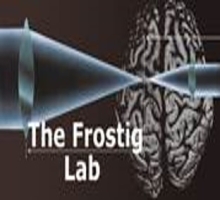BME Seminar Series: How Does Neuronal Activity Protect the Cortex from Stroke?

Professor
Center for the Neurobiolgoy of Learning and Behavior
Department of Neurobiology and Behavior
School of Biological Sciences
UC Irvine
Frostig Lab
Abstract: Stroke is the fifth leading cause for death in the U.S. and No. 1 cause for long term disability. Traditionally, stroke has been studied in animal models using cellular and molecular techniques, but little attention has been paid to neuronal activity. In this talk, I will describe surprising findings in a rat model of ischemic stroke relating sensory stimulation-evoked neuronal activity and stroke. Depending on delivery timing, sensory stimulation-evoked neuronal activity can protect the cortex from impending damage or exacerbate the damage. I will further elucidate the neuronal and vascular mechanisms underlying the protection and exacerbation processes and describe our accumulating evidence that neuronal activity and cortical structure-function relationship are pivotal players in understanding ischemic stroke outcome.
Bio: Ron D. Frostig is a professor of neurobiology and behavior and biomedical engineering at UCI. He received his bachelor's degree in biology and his master's degree in neurobiology from the Hebrew University, Israel. He received his doctorate in neuroscience at UCLA, and was a postdoctoral research scholar in neurobiology at the Rockefeller University. His lab’s major research interests include basic and pre-clinical studies of neocortical structure and function with an emphasis on plasticity.
Share
Upcoming Events
-
E-SONIC: Engineering-Symphonic Orchestra New Instrument Competition
-
MSE 298 Seminar: Adaptive Materials Through Bioinspired Design and Additive Manufacturing
-
CBE 298 Seminar: The Route To Better Catalysts: From Surface Science To Nanotechnology
-
MSE 298 Seminar: Capturing Grain Boundary Migration in 3D Polycrystals
-
Synthetic Biology Symposium 2024
